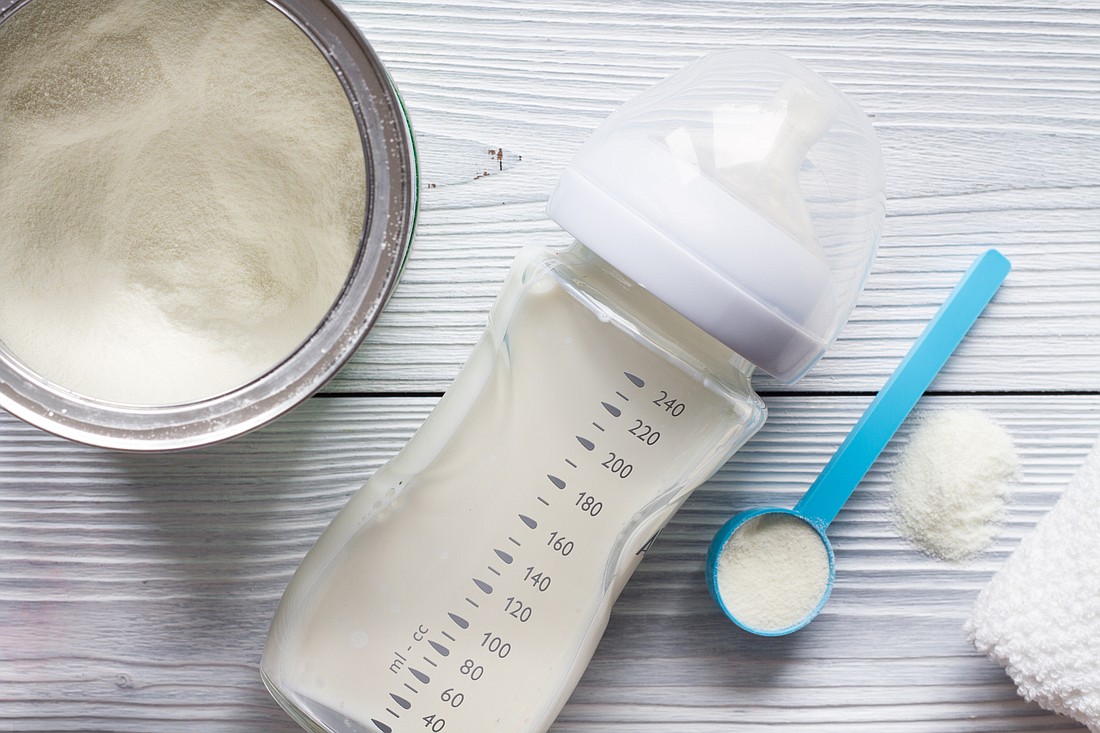- February 4, 2026
-
-
Loading

Loading

While infant formula remains difficult to find locally, Central Florida parents have several resources available to them while they wait for store shelves to be replenished.
Local milk banks such as the Milk Depot at Orlando Health’s Winnie Palmer Hospital for Women and Babies and Mother’s Milk Bank of Florida are available to provide donor milk. Moreover, pediatricians also are offering advice to parents struggling to find cans.
PHYSICIAN ADVICE
Roshni Patel, chief of pediatrics at Community Health Centers Inc., said pediatricians are an important resource to get proper guidance supported by the American Academy of Pediatrics.
“The formula shortage is affecting many parents and families,” Patel said. “There have been changes made recently at the federal level, which we hope will help with the shortage over the next few weeks. It is important for parents to reach out to their pediatrician’s office if they have any questions or concerns to ensure their baby stays healthy during this difficult time.”
Patel said it is important parents only take what they need and not to hoard formula, because that could worsen the shortage crisis. Checking smaller stores and drug stores, in addition to trying online shopping through Amazon, Walmart or Target, may prove beneficial.
“People are kind of experiencing the whole toilet paper situation of COVID where they’re in parent buying mode and they’re going and scooping up whatever they can find and stockpiling it,” Orlando Health pediatrician Rachel Prete said.
According to Patel, it is OK to switch formulas temporarily if a baby is on a standard infant formula; even generic or store-brand formulas are options to use, as long as they are FDA-approved. If a baby is close to one year of age, they may use toddler formula for a few days in an emergency.
If a baby is on a high-calorie formula or on specialized formula such as amino acid or hydrolyzed formula, it is important parents talk with their pediatrician, who can help guide them in other acceptable brands or alternatives. Patel said some pediatrician offices may have sample cans.
According to Prete, if a child is older than 6 months and parents are desperate, the AAP has stated it is safe for mothers to use whole cow’s milk for a short period of time — no more than 24 ounces in a day, to supplement a baby’s diet until mothers are able to get ahold of formula.
However, Prete and Patel both cautioned against certain options, including homemade formula.
“It’s very unsafe, because these are not experts online, these are people who think they have become experts by reading on the internet and creating these recipes that could potentially cause electrolyte abnormalities in children, and we definitely don’t want people making their own formula,” Prete said.
In addition, watering down formula is not recommended as it can limit proper nutrition for a baby and can make the baby sick.
Prete warns against obtaining breast milk from a mother who hasn’t been screened and approved as a donor.
“We never support people buying breast milk or using other people’s breast milk,” Prete said. “You don’t know that person’s medical history, and you don’t know if that person has been tested to determine that milk is safe.”
LOCAL RESOURCES
The Mothers’ Milk Bank of Florida is a 501c(3) charitable organization that collects, processes and distributes donor human milk.
Laene Keith, spokesperson for the bank, said the internet is not always the best place for information — especially when thinking about an infant’s brain development. Any foods offered to a baby in the first 12 months of life are setting the foundation for brain development.
“This is such a passionate and emotional topic for families, because as they’re navigating the optimal feeding method for their baby, they’re really being tossed a lot of information all at once,” Keith said. “We know that families are going through every measure that they can think of to find a nourishment that’s going to be optimal for their own baby, and we honor completely that families are really looking in a unique way to find this resource.”
Although the nonprofit does not advocate for any type of method for distribution outside of the organization, the bank recently partnered with the University of Central Florida on a study where families can learn safe and compatible resources to help connect families with lactation professionals for their individual care.
The UCF study didn’t find the exchange among strangers something that routinely happens in Central Florida and found that the buying and selling of milk was rare.
Keith said the bank has received an increase in phone calls, social media messages and emails from locals asking about how to receive milk and how to become a donor.
“Our women in Florida are so gracious, generous and kind to offer the milk that they provide and gift,” Keith said. “Our hearts go out to our families in such a time of crisis.”
The Milk Depot at Orlando Health’s Winnie Palmer Hospital for Women and Babies is another local resource. The Milk Depot serves as a safe, controlled collection point where women can donate their extra breast milk to premature and at-risk infants.
The babies in the Neonatal Intensive Care Unit at the hospital depend on this nourishment to thrive when their mother’s milk is not available. Donor milk is used by preemies and older babies who cannot tolerate formula, have a weakened immune system or have special dietary needs. One ounce of donated milk can feed a preemie for an entire day and give him or her a fighting chance at surviving and improved health.
Both organizations require donors to go through an extensive interview and screening process including a general questionnaire, blood testing and approval by the donor’s primary physician.
MORE INFORMATION
Donor Milk Depot: (321) 843-8264
Mother’s Milk Bank of Florida: (407) 248-5050 or email [email protected]